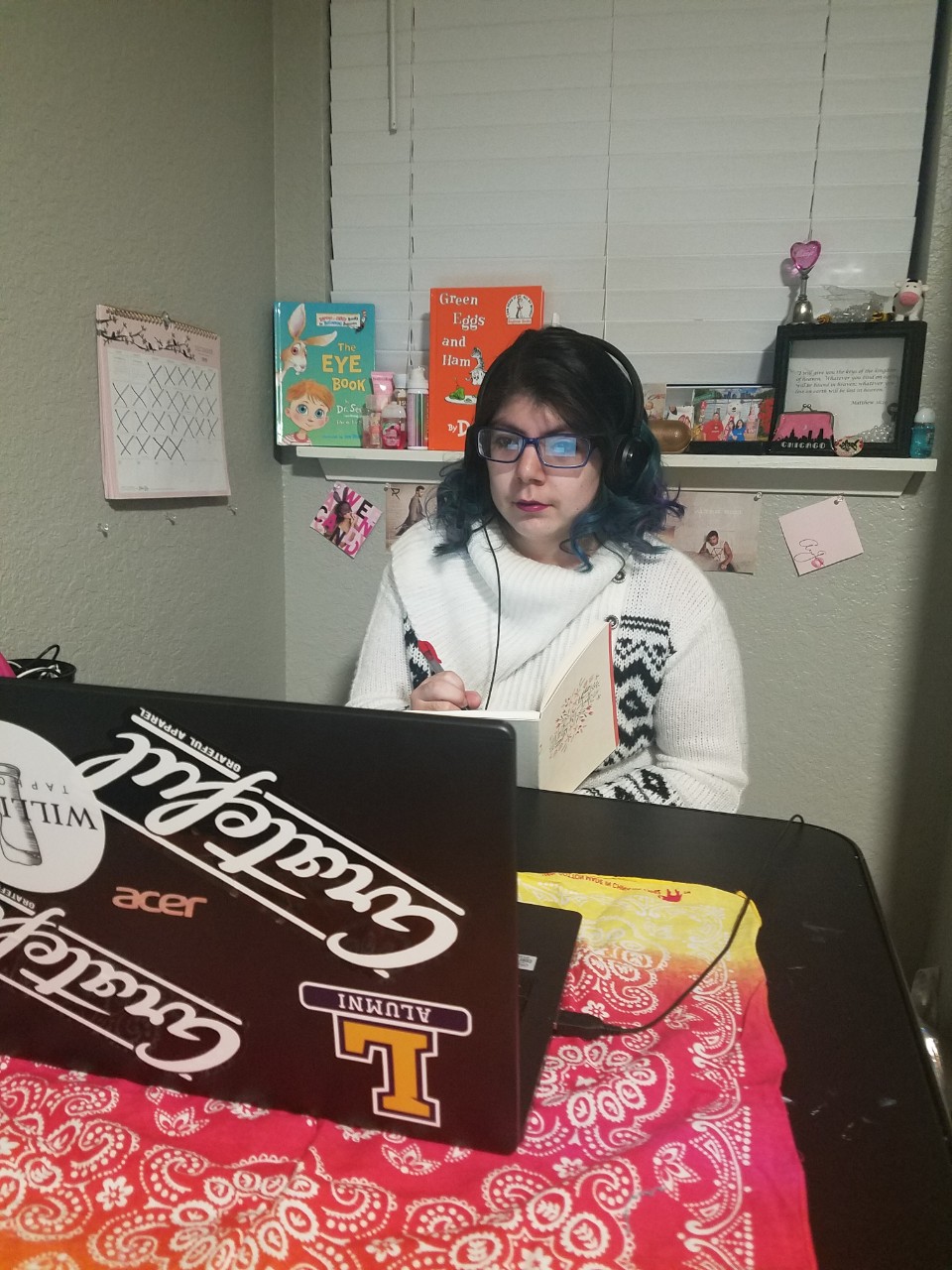Breaking Ground 106 - What now? Finding my path in a pandemic
by Fermina Lopez, Lipscomb University IDEAL program graduate, class of 2020
Fermina Lopez graduated from Lipscomb IDEAL in 2020 and is seeking a career as an event planner or in the entertainment industry. Fermina’s most recent accomplishments are serving as a panelist at the Metro Nashville Public Schools Exceptional Ed Teacher Conference, serving as a motivational speaker at the 2019 Youth Advisory Conference, and winning an award as a Summer Youth Leadership Academy peer mentor. Fermina has been an intern at EmpowerTN and at the Frist Museum of Art.
COVID-19 placed many new challenges in my life. This made me think of new ways to reach my dreams and career goals.
The first challenge was finishing my post-secondary program, IDEAL at Lipscomb University. I was really looking forward to returning to school after spring break in 2020, but our campus closed, and we had to go to remote learning.
When online classes started, it was challenging getting used to Zoom. I had some embarrassing moments until I learned how to mute myself so people couldn’t hear my personal remarks.
I finally got the hang of my classes on Zoom and was really hoping that things would go back to normal before graduation in May 2020. I had planned a graduation party, with friends and family coming from all over Tennessee and other states. COVID-19 put an end to all those plans. The school did the best they could by having a virtual graduation, but it just wasn’t the same.
As I realized things were not going back to normal, I started to worry about my career path and employment opportunities. My stress about my future started to turn into depression.
One worry was my access to technology. I had to return my laptop to the IDEAL program after graduation. Then, a miracle happened! I heard about Council’s COVID small grant opportunity. The grants could be used for job exploration, schooling, and to help people with disabilities stay active in the community. I rushed to apply for the grant and was so grateful when I heard I would be given a grant to purchase a laptop.
Once I bought my laptop, I made a list of things I wanted to do.
- Find resources that would help me as an adult with Cornelia de Lange syndrome
- Stay active with local community agencies
- Join activities that would help me with my emotional feelings
- Continue school courses for my career goals in the entertainment industry
With the help of the grant, I was able to do all four.
I joined the Cornelia de Lange Syndrome (CdLS) Foundation. I started going to monthly meetings with other people with CdLS to talk about issues we face with school, medical needs, housing, transportation, and mental health. I also attended the virtual CdLS National Family Conference, which is a four-day event that brings together the whole CdLS community. It was great to network with families all over the world to discuss and learn about CDLS. I am still actively involved with the foundation and plan to be at the next in-person conference in 2022.
My new laptop also gave me the opportunity to stay involved with local community agencies, like Empower Tennessee. Empower Tennessee helps people with disabilities with independent living skills and support. I was first introduced to Empower TN in 2018, when I attended the Summer Youth Leadership Academy, sponsored by the Council. In the program, young people learn together about self-advocacy, job exploration, and resources in our community. I then became a peer mentor for the program, which earned me an Empower TN Peer Mentor Award. I thought I would miss the Summer 2020 Youth Leadership Academy, but with the help of my new laptop, I was able to still be a mentor at the virtual camp.
I was also able to participate in Upstream Arts (upstreamarts.org) to help me with emotional support. The program offers free and low-cost classes that use the arts to help people with disabilities of all ages to use their voices and express their feelings.
I’ve learned to use music, dance movement, drawing, and painting to think more positive and happy thoughts. The classes also helped me release stress during this pandemic.
Finally, I was able to find PHAME-Portland (www.phamepdx.org), a school of the arts and performance. PHAME offers all kinds of arts and performance classes, including in musical theatre, songwriting, digital photography, poetry, voice-over, and animation. COVID-19 caused PHAME to close their campus, but they decided to offer online classes to their students. That’s how I found the school, through an online search.
I was so happy that the school allowed me to take online courses. It has been a great experience. I have made new friends in Portland, Oregon and have had some great opportunities. I have done a voice-over radio podcast for XRAY Radio and had a small voice-over role in an animation video for the school’s YouTube channel.
I plan to relocate to Portland so I can be more involved with the PHAME program and find opportunities in the entertainment industry. The best thing about PHAME is that it’s not just a school for the arts, but also a community where people with and without disabilities come together to share their passion for the arts and entertainment.
Even though I faced many new challenges during the pandemic, I have been able to find solutions to my obstacles. With help from the Council COVID grant opportunity, I have found new opportunities that have created a new path for me in 2021.